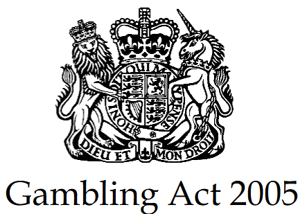 It’s one thing to place a bet with a licensed sportsbook or betting shop. These are all done through official companies providing such services (in most instances). And therefore, they are legal actions under UK law. However, what is the case when it comes to placing private bets – wagers with your mates, a rival or bets with someone else generally?
It’s one thing to place a bet with a licensed sportsbook or betting shop. These are all done through official companies providing such services (in most instances). And therefore, they are legal actions under UK law. However, what is the case when it comes to placing private bets – wagers with your mates, a rival or bets with someone else generally?
You and a friend could have a little wager about the outcome of an event, and this would be deemed as a private bet. And this kind of activity takes place all the time. It’s not an uncommon pastime for friends and acquaintances to have a bit of fun by betting against each other. The wager is accepted between both parties and when the outcome occurs, the winner takes the money. Legal or not, the normal outcome is that one person wins the whole pot and the other loses.
In general though, these wagers are usually for small amounts. Let’s say that one person suggests placing a £20 bet on their local Sunday league football match. The other person takes that wager and backs his team for £20. Whichever team wins, the total of £40 is taken away by that person. And that’s a simple private bet in action. In fact, this type of wagering is the basis of gambling today and goes back thousands of years in history, long before licensed gambling existed. Legal or not it is not something the tax man or anyone else is going to concern themselves with too much.
What about those people who bet huge amounts in these situations, though? For example, if someone bet £10,000 that they could run the London Marathon in a quicker timeframe than their friend, and the friend accepted the bet for the same amount, how is this done? And what’s more, how do you go about declaring an income of £20,000 from this type of situation? If HMRC wanted to know where that £20,000 had come from, what would you say to them with regard to it? If you classed this as a gift, for example, you would potentially be liable to pay tax on it.
Private bets may not specifically be as simple as just entering into a wager with someone you know. Let’s find out more about the legality and protocol behind these types of gambles.
Laws Surrounding Non-Commercial & Private Betting
 The United Kingdom Gambling Commission has its own guidance on non-commercial and private betting. However, this is marked as only being guidance, and the rules surrounding this type of activity are complex, to say the least. The guidance is not a binding interpretation of the law and it is not able to cover every single circumstance of private betting. It is therefore necessary for anyone intending to enter into such a state to refer to the country’s Gambling Act 2005 (although this is due to be reviewed in full in due course).
The United Kingdom Gambling Commission has its own guidance on non-commercial and private betting. However, this is marked as only being guidance, and the rules surrounding this type of activity are complex, to say the least. The guidance is not a binding interpretation of the law and it is not able to cover every single circumstance of private betting. It is therefore necessary for anyone intending to enter into such a state to refer to the country’s Gambling Act 2005 (although this is due to be reviewed in full in due course).
If necessary, it is advised to seek out relevant, independent legal advice – especially if you’re intending to run events that fall within the category of non-commercial and/or private betting.
Gambling is permitted by the Gambling Act 2005, without any specific permission, but under limited instances. Private gaming and betting are included within this section of the act. Betting is deemed as private if it is domestic betting or workers’ betting. Domestic betting is labelled as such if it is made by two parties who reside within the same location. On the other hand, workers’ betting takes place between two parties who work in the same company or for the same employer.
According to these rules, betting with your friends is a legal activity in the United Kingdom. Whether you’re wagering with colleagues or friends at home or at work makes no difference. Even if you engage in a game of poker with several friends at home, this is also a legal activity, because it is not occurring within a commercial establishment, where a licence would be required for such activity. In the end though, the house cannot take a rake or make any money from the game. Instead, all money must go to participants (or to charity if not), rather than to fund anything else. No entry fees could be applied in this situation.
You couldn’t, for example, run your own book on a horse race between friends if you intend to build in a margin into those bets and make a profit. If you wanted to do this you would need to be a registered business and apply for the appropriate personal licenses and operator licenses. If, however, you ran a sweepstake on a race where the whole pot is paid out to the winner(s) this would largely be fine.
Is There an Official Line on Gambling with Friends?
 Let’s say that you and two of your friends go to the pub and sit down to watch a football match between Manchester United and Arsenal. You’re in the mindset that Man U will be the victors, while one of your friends has much more faith in Arsenal. The third friend involved believes that a draw will occur between the two teams. You all decide to wager £10 each on your respective choices, and the winner will take home £30 with them in the end once the match is over. That’s fine.
Let’s say that you and two of your friends go to the pub and sit down to watch a football match between Manchester United and Arsenal. You’re in the mindset that Man U will be the victors, while one of your friends has much more faith in Arsenal. The third friend involved believes that a draw will occur between the two teams. You all decide to wager £10 each on your respective choices, and the winner will take home £30 with them in the end once the match is over. That’s fine.
It’s not alright for you to go around the pub and start taking wagers from other guests, though. You’re starting to act like a bookmaker in this instance, and it certainly isn’t alright to take a cut of the pot for yourself as such. In the same vein, you wouldn’t be able to run a card game where you take a cut of the pot and earn a profit, but you would have no issues by sitting down at a table with a few friends and engaging in your own private game of poker.
What is important to bear in mind is that when you place a bet with a licensed sportsbook or casino you are entering into a contract (I agree to pay you X stake and you agree to pay me X winnings if it wins). These contracts afford you legal protections and potential recourse in the event that something goes wrong. You will not have these types of protections if you enter a private bet, you are reliant on the loser paying you out and, unless you have drawn up a solid contract, there will be no way to pursue those winnings if the other party refuses to pay.
But what about when it comes to taxes? If you acquire a huge win of £10,000 on top of the £10,000 that you wager against a friend, how do you go about declaring this? If HMRC comes seeking for answers as to why your bank balance has increased by so much in an instant, what do you tell them about it?
Information on Declaring Private Winnings
 If you had engaged in sports betting or casino gaming at an online site, then you wouldn’t be charged any taxes on the winnings you may have earned. This is because the betting operators are taxed on their income instead, and this means you don’t have to pay anything to HMRC in regard to this money. Is this the same when it comes to engaging in private bets, where you’re not actually participating in gambling within a licensed establishment?
If you had engaged in sports betting or casino gaming at an online site, then you wouldn’t be charged any taxes on the winnings you may have earned. This is because the betting operators are taxed on their income instead, and this means you don’t have to pay anything to HMRC in regard to this money. Is this the same when it comes to engaging in private bets, where you’re not actually participating in gambling within a licensed establishment?
As a standard HMRC takes a cut of everything that you earn over certain thresholds. When you are given a wage slip by your place of employment, the tax will usually be shown as deducted automatically and the remainder is then put into your bank account (minus any pension payment or anything else). What about if you receive some other money, though?
What does HMRC count as a gift, and should you declare a large private betting win as a gift? A gift can be anything that you receive which has value, such as money, a car, jewellery, property and so on. Income tax is not charged on gifts, although you may have to pay income tax on any interest that your gift earns afterwards.
The general rule surrounding the reception of a gift is that you can be given up to £3,000 in tax-free money every year. Spouses can gift each other as much money as they like as long as they are together. If you had a wager with your wife or husband, then you could gift them the winnings without any problem.
Judging by these rules, if you declared a win from your private bet with a friend as a gift, then it would only be legitimate as such in this circumstance if it was below £3,000.
Information released by the government surrounding the application of VAT to betting situations states the following:
“3.2 Stake Money
This is the money paid by each player or players which is risked in the game and is returned as winnings to the winning player or players. It is outside the scope of VAT as it is not consideration for any supply by, for example, the gaming club to the player.”
This implies that if you are simply placing a stake of £500 against a friend, and they place the same stake, then this total of £1,000 is not affected by VAT. At the same time, because private betting does not require an official UKGC licence to take place, it is exempt from any taxation, too. This money also does not exist under the income tax bracket, either. Primarily because you are not working towards the reception of the money, it is not a state benefit, it isn’t a grant or support payment, and it is not rental income or income from a trust.
In essence, if HMRC comes calling and asks why you have a bolstered bank account all of a sudden, then you should inform them that you gained the money from engaging in a private bet with a friend. This is exempt from betting duty, because the bet did not take place via or within an official gambling establishment. And furthermore, that betting duty is only paid by the betting establishment in those situations anyway. All winnings that you earn from playing at such a place are exempt from tax, and the same is true of engaging in private bets.
Regardless of whether that private bet is for £10, £10,000 or £1,000,000, if you win, you will not be charged any sort of tax on it. Only once it enters into your bank account will it potentially be subject to taxes, depending upon where it is saved. As long as it can be proved that you gained the money via a private bet with a friend or acquaintance, then HMRC cannot specifically contest this.
If you are placing a big private bet then it is worth getting proof of the bet and the winnings, a signed contract or a receipt for payment. This is in order for you to prove where that money came from. If, for example, you wanted to put that money towards a deposit on a house then you would need to prove where you got that money from in order to satisfy money laundering and fraud laws. Indeed, even if you want to put a significant amount of money into a licensed online betting account you need to provide proof of where it came from these days.
Historical Private Bets

Bookmakers make money by not taking risks, they are the opposite to the punter, they don’t care about the outcome they care about having a balanced book (equal proportion of bets on all outcomes) in order to make a profit. This wasn’t quite the case with Victor Chandler (founder of BetVictor) and Fred Done (Betfred), though. Many people within the gambling industry actually like to engage in betting themselves, too. And this was how a £1 million football bet was conjured up back in 2004.
Back then, Fred Done (who is one of the co-owners of the Betfred brand) acted as the protagonist, offering his fellow bookmaker Victor Chandler the opportunity to get involved in a wager. He wagered £1 million that Manchester United would finish the Premier League in a higher position than Chelsea that season. Chandler accepted the wager, putting his full faith in Chelsea for the season, which earned him a huge payout. Chelsea finished at the top of the league, securing a full 18-point lead ahead of second-placed Manchester United.
Done paid up the full amount of the wager once the season was over, providing Chandler with a nice extra £1 million to top off his own stake. No formal contract was laid out between the two for it but Done was obviously a man of honour and integrity. The huge wager garnered media attention, and even though this seems to have been the only one to have taken place at such a high level, it wouldn’t be a far leap to imagine that others have taken place in a similar vein behind closed doors.
Could that type of bet take place today with the Gambling Act 2005 being in place? Well, the likelihood is that the owners of two prolific betting companies would want to make everything legal and regulated, because perhaps not all people are as honourable as Fred Done was in his bet against Victor Chandler. The likelihood is that they would do it through an official sportsbook to ensure that there is also a record of the wager in the first place. This would then mean that a payout could definitively take place once the bet had come to a close.